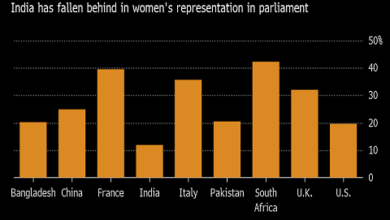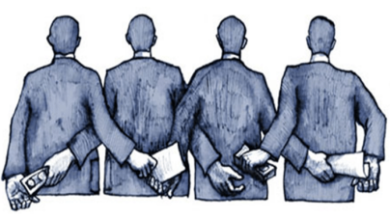
Cancel Culture
Noun
The practice or tendency of engaging in mass canceling as a way of expressing disapproval and exerting social pressure. (Merriam-Webster)
Similar: Call-out culture, call for accountability, communal ostracism, consequence culture, mass-shaming, mob rule, moral policing, outrage culture, puritanism, social justice, social media trials, vigilante justice, witch hunting.
Writing an opinion-based piece on an opinion-based movement feels like a full-circle moment. Despite the gentle reproaches of our blog manager, I have endeavored to give my two cents on the Twitter hashtags I see most often – #canceled and #boycott. And yes, I have jumped on the cancel culture debate bandwagon quite late in the day. What has prompted me to contribute to the already existing hundred or so content pieces, is the sheer dedication with which netizens have persevered in their boycotts. Not a day goes by without opening Instagram and coming across a meme page criticizing Ellen DeGeneres for her toxic behavior.
With the intention of forming an opinion that was not based on the hate comments of dubious accounts, I dove into the rabbit hole of researching cancel culture and its many cancelees. Finding its origins in a misogynistic dialogue, the term truly rose to fame with a 2014 Vh1 show. Its roots can be traced back to the black culture as well with many supporters claiming it as a legacy. In our times, cancel culture is the mass practice of shaming/banning a public figure or company for perceived transgressions. It is a call for accountability that is powered by the massive power imbalance between your ordinary netizens and verified celeb users. A movement largely based on social media, cancel culture has multiple facets that are complex to scrutinize in the least.
Source – uDOh PH
While public opinion remains largely divided on canceling people, the champions of the movement are not so easy to split into two groups. The West sees cancel culture being spearheaded by liberals and left-wing individuals, while the East (India in particular) sees the conservatives and right-wing groups dominate the boycott fad. Both ends of the political spectrum are active in canceling people, and the blurred (and shifting) lines make it appear that the objections of both ends stem from the same place.
Let’s look at two cancelees on Indian social media. First comes comedian Vir Das who was called out by liberals for tweeting a joke about his pronouns. Many took the virtual platform to criticize his approach and demanded apologies for the same. Second comes the 2020 episode of comedienne Agrima Joshua who faced threats after making a joke on Chhatrapati Shivaji Maharaj. Maharashtra youth wings and party workers took to Instagram to slam Joshua for her jokes.
In both instances, an apology was demanded because it hurt the sentiments of respective groups. The LGBTQ community was distressed by Das’s comment because it negatively impacted the awareness they were trying to create. The Hindu-Maharashtrian community was hurt because the joke poked fun at a historical figure of importance. Evidently, no political wing can lay claim to the award of most people canceled. In fact, cancel culture reinforces the Horseshoe Theory if you simultaneously examine the comments posted by both political wings.
Examples like the ones mentioned above might seem trivial in the scheme of global internet use, but the power of the cancel culture raises deeper questions surrounding justice. The primary grounds of opposing cancel culture are those of ‘retributive justice’. According to this perspective, cancel culture is far more concerned with punishing the perpetrator rather than helping the victim. It births the cycle of calling for accountability through immense social pressure, enforcing the public’s demands, and dismissing the perpetrator’s apology as superficial or hollow.
This retributive justice is more focused on the ‘justified rage’ of the people. Critics of cancel culture put forth the idea of transformative justice instead. In her booklet We Will Not Cancel Us, Adrienne Maree Brown wrote:
“I have a vision of movement as sanctuary. Not a tiny perfectionist utopia behind miles of barbed wire and walls and fences and tests and judgments and righteousness, but a vast sanctuary where our experiences as humans who have experienced and caused harm, are met with centered, grounded invitations to grow.”
Source – wsj
While the need for a nuanced understanding of cancel culture is felt more and more, we see it creeping into the private realm as well. Gen-Z and Gen-X often use their social media handle to ‘cancel’ a family member, teacher, or friend. Here we broach the subject of relativism and context. When my grandmother married into her conservative Gujarati family, the practice of Aabhadchhet (untouchability) was followed during the menses. Moreover, a woman could not enter the kitchen without bathing and being fully dressed in a saree.
Each use of the washroom meant taking another bath. Through the course of the sixty-five years of her life, my grandmother abolished most of these archaic practices in her household. Her daughter, daughter-in-law, and granddaughter never followed them. But she was still uncomfortable with the idea of them wearing short clothes in the presence of family. Would this warrant her ‘cancellation’? If progress is defined as development towards an improved or more advanced condition, then each individual progresses subjectively.
Cancel culture strives to homogenize notions of growth and advancement with a myopic view. Most importantly, it refuses to acknowledge the ability of people to change with time. This is precisely why canceling people for minor transgressions made years ago is not acceptable. Using today as a yardstick for the previous years is an inherently flawed system of judgment. Because how far behind can we go? Shall we cancel Aristotle, Plato, Darwin, or Picasso?
July 2020 saw the publication of A Letter On Justice And Open Debate in Harper’s Magazine.
The 153 signatories of this letter put forth the simple point that ‘ideological conformity’ was a dangerous practice. The letter read, “The way to defeat bad ideas is by exposure, argument, and persuasion, not by trying to silence or wish them away.” It would do good for the right-wing radical groups in India to tear a page of this book. Unfortunately, they are occupied with canceling clothing brands and actors.
Source – Twitter
Despite its many, many shortcomings, cancel culture has birthed important conversations surrounding consent, sexual harassment, sexuality, feminism, mental health, and racism. Take the allegations against actor Azizi Ansaari which raised questions on affirmative vs enthusiastic consent. Or the leaked chats between influencer James Charles and a minor which had everyone talking about predatory and inappropriate conduct. These discussions have been the need of the hour with #MeToo and #BlackLivesMatter taking front stage. With these movements, we have said to the victims, “We are listening.” But it is essential to cease social media trials and pronounce judgments. Getting over woke culture is advisable for the collective health of society.
Written by- Mudra Joshi
Edited by- Oishika Ghoshal
The post The Curious Case of Cancel Culture appeared first on The Economic Transcript.





